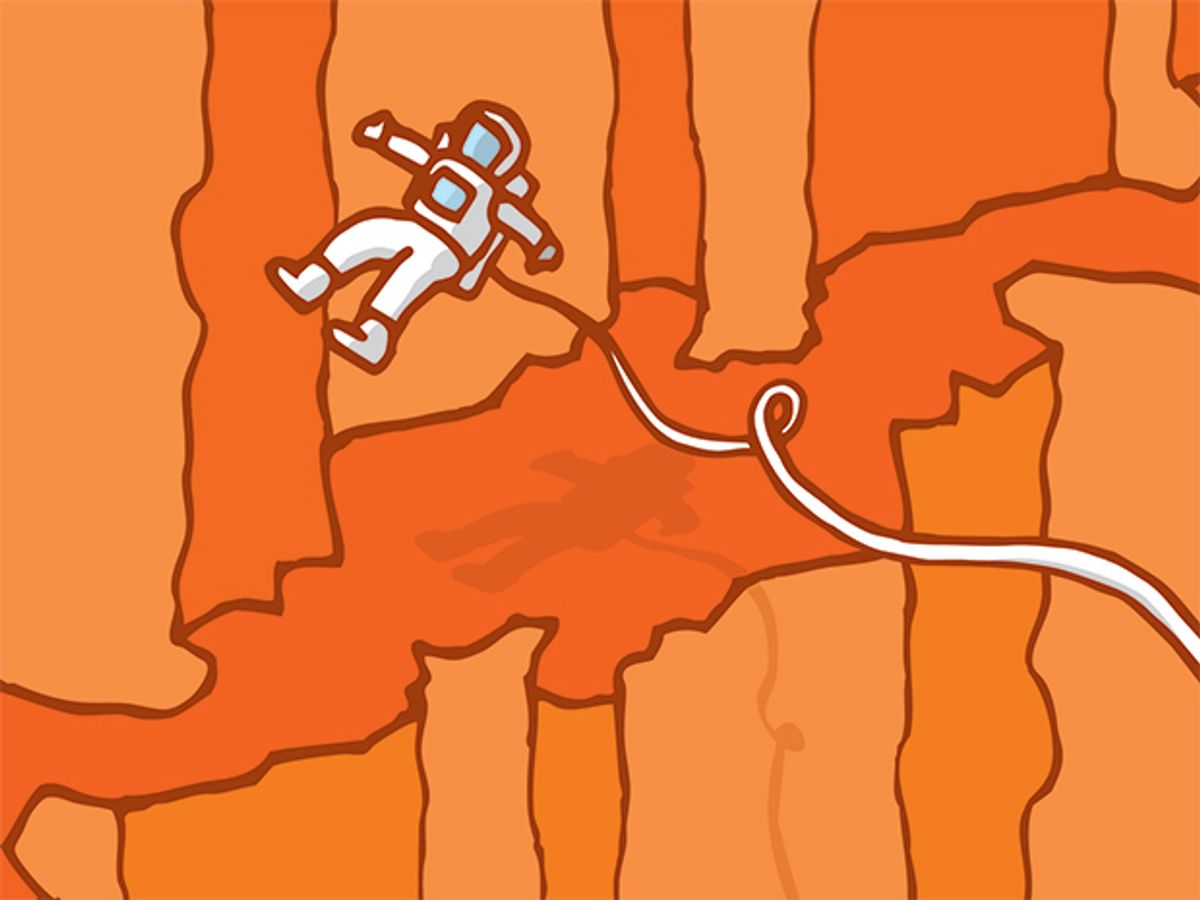Space is a dangerous place. A new report shows just how dangerous it could be to human brains. Radiation exposure from a Mars missions could cook brain cells, causing chronic dementia and memory loss, and leaving astronauts with debilitating anxiety levels, the study has found. This could throw off their thinking and judgment, impairing decision-making and multi-tasking.
The results, published in Scientific Reports, are based on experiments in rodents. Radiation oncologist Charles Limoli and his colleagues at the University of California Irvine bombarded mice and rats with low-doses of ionized oxygen or titanium. These charged particles have similar energies to those of cosmic rays that can pass right through the shielding on spacecraft. The dosage levels that the researchers used were similar to what astronauts would be exposed to during a three-year round-trip mission to Mars, Limoli says.
The researchers looked at the prefrontal cortex, the brain region linked to decision-making, executive function, and long-term memory. They saw significant damage and inflammation in the brains of exposed animals as long as six months after the exposure.
The radiation damaged the tiny branches on neurons that help transmit electric signals to the nerve cell body. This led to a loss in learning and memory. The exposed animals performed poorly on behavioral tests that measure intelligence, and they showed higher, constant anxiety levels.
“Our tests ask animal to recognize and respond to novelty,” Limoli says. “Smart animals recognize novelty. The affected animals show stress and don’t explore.”
Astronaut Scott Kelly’s 340-day trip aboard the International Space Station was part of NASA’s plan to study the effects of long-term spaceflight on the human body. However, going to Mars is a whole different beast than a trip to the moon or the ISS. NASA has been researching the risks of long-haul missions to the red planet and beyond. Limoli’s US $9 million project to investigate how cosmic radiation affects astronauts’ cognition is part of NASA’s Human Research Program.
A six-week study done by the group last year showed similar results. The latest findings, 12 and 24 weeks of measurement, show the long-term nature of brain damage from space travel. “What’s most surprising is how persistent some of the changes to the structure of neurons are,” Limoli says. He adds that his group has unpublished data showing that these effects last for a year.
While the results might not translate directly to humans, he says that it definitely implies that deep space travel could carry huge risks for astronauts. “Space is an inexact science.”
NASA is already investigating ways to mitigate radiation risks. These include thicker shielding, new radiation-blocking materials, protective suits, magnetic fields to recreate Earth’s natural shield. Limoli, meanwhile, is developing drugs that could protect the brain’s circuitry.
This story was corrected on 10 October.
Prachi Patel is a freelance journalist based in Pittsburgh. She writes about energy, biotechnology, materials science, nanotechnology, and computing.



